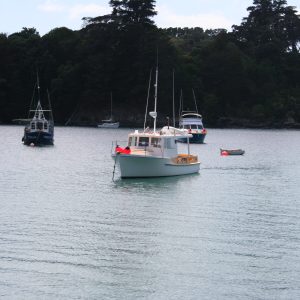There have been several government-led attempts in the past to force recreational fishing into the Quota Management System, all have failed. More ominous are the recent catch share proposals funded by big business interests, local and international. The common theme is that recreational fishing is an out of control sector requiring “management” via a fixed share of the Total Allowable Catch.

Truth is, recreational fishers take a very small portion of the Total Allowable Catch (TAC), around 3%. Sure, in some fisheries such as snapper, kahawai and blue cod we have major interests however, for the most part we are a minor harvester compared to total catch.
What’s more, recreational fishing is at the mercy of commercial interests who lobby for the highest possible catch, which equates to the lowest possible stock size. This high catch depletes the fish resource to a point that recreational catch suffers.
A fixed share is touted as offering commercial interests “certainty”. This is supported by the argument that commercial fishing is constrained by a fixed share so the same ought to apply to recreational catch. That was never the intention of the law makers. The Minister of Fisheries has a statutory obligation to ‘allow for’ non-commercial fishing interests, both Maori customary and recreational interests before the Total Allowable Commercial Catch is set.
As we have seen around the world, catch share programmes that devolve a quota to recreational fishers inevitably restricts recreational fishers’ ability to take a catch. The system quickly becomes both inflexible and an unpopular regulatory change that is difficult to reverse. Industrial interests then obtain the benefits from preventing non-commercial catch from expanding.
The recent to and fro over the southern bluefin tuna Total Allowable Catch is a prime example of commercial interests trying to limit recreational catch to the 20 tonne allowance when much of the 1100 tonne Total Allowable Commercial Catch remains uncaught.
As we have advocated all along, fisheries catches need to be allocated by a Minister of the Crown who has considerable discretion. The Minister needs a set of principles to guide decision making. Decisions can then default to provide for uncertainties, ecosystem services, economics, cultural needs and the overarching obligation to maintain functioning ecosystems for future generations.
Fisheries regulations need to be flexible and able to respond to the feedback that will occur with any change in regulatory regimes. Fixed quota systems fail on several fronts, and providing for recreational fishing interests is a biggie.
Recreational fishers will always be feeding on the crumbs while the quota system is being used by industrial fishing to capture the regulatory body (MPI) and maximise catch to upper bound of what can be argued.




